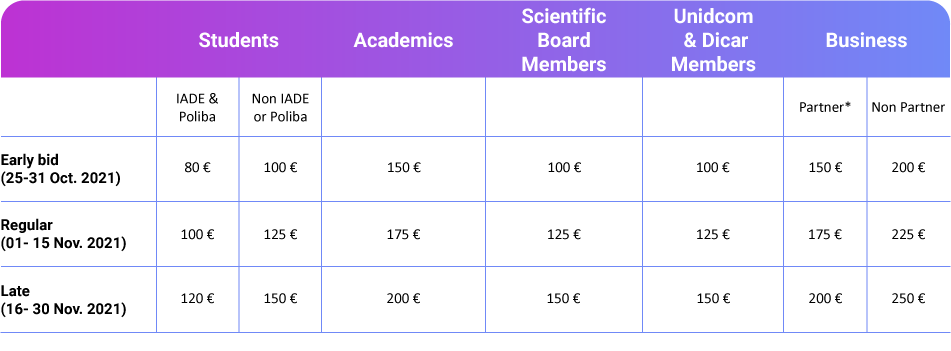11th International Conference
Senses&Sensibility 2021
09 | 11 Dec 2021 – Bari, Italy
Conference Proceedings
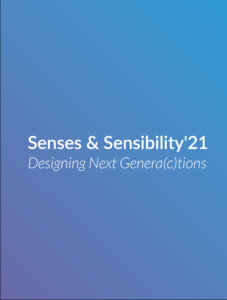
Conference Proceedings Published by IADE Press are now available for the download
Call for Papers
The time between the 10th International Conference Senses&Sensibility’19 in November 2019 and the next edition in December 2021, represents a period of important changes. The pandemic of Covid-19 started in November 2019 changed the lives of billions of citizens, with significant repercussions on the economies and radical changes in the social contexts.
The various responses to this event showed important capabilities in terms of resilience and reactions to the change. This occurred, in various forms, in all the main areas impacted by the emergency (from school to work, from the family to the most extended social communities), and in relation with the territories, the cultural contexts, the communities, and the organization of the productive systems (industrial and manufacturing).
Even if the post-pandemic scenario is still not defined, the need to move the action plans towards process adaptability appears quite evident. In this context, the design reflections are encouraged to move towards a new transitoriness and planned flexibility.
The post-pandemic transition is presented as a high complexity task. Firstly, because it is expected to last a long time, and secondly because it will be a pot for the most cogent questions coming from the past, about instances for many years in the European and Trans-European agendas, such as fair climate, digital transition, recovery and resilience in health, biodiversity protection e gender equality.
The political interest on these topics, together with new reflections regarding concepts as exaptation and dark ecology, are signs of a new awareness in which the means and the forms of the knowledge are placed at the center of the investigation in a new context that is no more spatially static and temporally measurable, but in a continuous variation of solution and complication, according to a principle that we could define as “trans-action”.
The International Conference Senses & Sensibility’21: Designing next Genera(c)tions intends to collect from researchers, practitioners, students, and academics original cutting-edge contributions, with a focus on inter-generational relational dynamics and the role of the inter/trans-actions activable in design, that must be used for building long-time scenarios.
The aim is to activate a new perspective in which the internal problems of the different design fields are addressed with a new co-evolutive responsibility that, through the research, acquires new determinations.
The “Interactions” and “trans-actions” become two possible strategies to activate processes that might involve design practices and enable the capabilities of the multiverse design, requiring the interpretation of the following terms/principles.
Interactions
interception, interchange, interface, interference, interpret, intersection, intergeneration, interconnection, intercultural, interdisciplinary, interstice, international, interface, interval, intermission, internet, ….
Trans-actions
transcript, transdisciplinary, transferability, transference, translation, transform, transfusion, transhumanism, transience, transition, transubstantiation, transpose, transmigration, translate, transcode, ….
To explore a new transdisciplinary field of research, the tracks of the conference will not be given by the organization in a pre-established scheme but will be the result of a co-generative approach based on the areas of interest given by the participants.
The Design course of DICAR (Dipartimento di Ingegneria Civile e dell’Architettura) of Politecnico di Bari, and UNIDCOM/IADE, Unidade de Investigação em Design e Comunicação, question possible scenarios that the academic design community might generate in a context which unites both realities.
There are four ways to participate in the S&S’21:
- Long papers (12 pages)
- Short papers (6 pages)
- “Tales from the field”
- Workshops
Regardless the type of work, initial submissions are in the format of a long abstract (2000 words).
Long papers
Long papers should report on substantial contributions of lasting value. The maximum length is 12 pages, in English.
A selection of the best long papers will be considered for publication as book chapters to be proposed to Springer. Long papers not selected as book chapters will be published in the Conference e-book of Proceedings with ISBN.
Short Papers
Short papers typically discuss exciting new work that is not mature enough for a long paper. In particular, novel but significant proposals will be considered for acceptance to this category despite not having gone through sufficient experimental validation or lacking strong theoretical foundation. Applications of PhD works are especially welcome. The maximum length is 6 pages, in English. Each accepted short paper will be included in the Conference e-book of Proceedings with ISBN.
Short papers can be either presented in a poster session or communication sessions according to the scientific committee decision.
“Tales from the field”
This category is intended for those that are practitioners, active in the market or non-profit organizations who are exploring design in their work within the communities. The proposals maximum length is 4 pages, English language. In the conference, presentations in this category will take the form of panel/roundtable discussions. The manuscript will be published in the Conference e-book of Proceedings with ISBN.
Workshops
Submissions to this category are expected to propose sessions that go beyond the conventional communication formats and that actively engage participants in other types of activities such as small discussion groups, do-it-yourself, hands-on group work. The proposal should include: the workshop’s title and its goals; the planned format, duration, methods or techniques used to structure the workshop; the way participants should contribute to the workshop; how the workshop topic and format link to the conference, minimum/maximum number of participants; and required equipment or setup conditions (if any). The abstracts will be published in the Conference e-book of Proceedings with ISBN.
Very Important
- At the initial submission (long abstract), the authors should indicate the presentation type and the macro-tracks (main and secondary) they are submitting their proposal;
- The most selected tracks will be selected as final Senses&Sensibility’21 Conference Tracks
- If your submission was invited by a particular Track-Chair, please mark as such and include their name when submitting.
- All the accepted abstracts, with the exception of those selected for publication as book chapters, will be published in the Conference e-Book of proceedings, with ISBN;
- The language of the conference is English and all submissions must be in English.
- The conference referencing style is APA, v.7.
- For inclusion in the e-book, at least one unique registration per paper is required;
- Submissions that do not comply with the conference rules/templates will be excluded from the evaluation process and subsequent publications.
Review Process
The peer-review process is double-blind (i.e., anonymized). Thus, authors must remove any information identifying them or their organizations. Specifically, do not include names and affiliations, anonymize citations to your previous work and avoid providing any other information such as acknowledgements and funding.
The revision will occur in a two-phase process:
1. Abstracts review, when one applies to the four types of works; i.e., long-/short-papers, workshops and tales from the field and
2. Papers review, applied only to papers category.
Acceptance
The selected papers will be published in the Springer Conference Book. The other papers will be published in the Conference Proceedings Books with ISBN (IADE Editions)
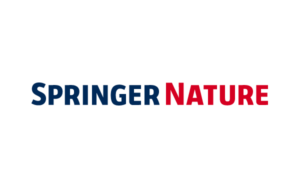
Macro Tracks

Design for Social Innovation, Sustainability & Circular Economy

Design for Health & Wellbeing

Design for Territories and Cultural Contexts

Design for Diversity, Inclusion and Equity

Design for Education & Culture

Design for Digital Interactions & Connections
How generative tracks work?
Submit your Long Abstract and include at least 3 keywords
The keywords of the accepted abstracts will be used to generate the proposals for the conference tracks
At the moment of the Camera-Ready submission, authors must select one track between the ones proposed
The most selected tracks will be choosen as the official tracks of S&S '21
EXTENDED 30/09/2021
Long abstracts submission
-
To participate, authors are invited to submit a long abstract (1900 - 2000 words, plus references in PDF format). In the header of the abstract authors are required to indicate the type of work (paper, tales from the field or workshop), and the track to which they are submitting their manuscript.
- Please, do not forget to omit any references to the author(s) or the institutions of affiliation.
- Please include a list of at least 3 keywords.
UNTIL 24/10/2021
Notification of Acceptance
-
After the notification of the abstract acceptance, full long/short papers should be submitted according to a template, which is here provided to the Authors.
-
Paper must be submitted according to the conference template. Other formats are not accepted.
-
Once reviewed, the accepted manuscripts will receive comments for necessary revisions for the final camera-ready submission.
UNTIL 23/11/2021
Camera-Ready paper submission
-
For long papers the limit is 12 pages. For short papers the limit is 6 pages (in English).
-
Register for the Conference.
-
Include a folder with the text in MS Word (doc. or docx), high resolution pictures, tables and charts in TIFF format.
- Do not update your initial submission but, create a new one.
- Select a track between the proposed ones.
UNTIL 13/2/2022
Springer Notification of Acceptance
-
The Best Papers will be included in the Book of the Conference edited by Springer. After the notification of long paper acceptance, the final chapter (camera-ready) version of the full paper should be submitted according to the Springer rules for inclusion in the book. Other formats are not accepted.
-
Other papers will be published in the Book of Proceedings with ISBN edited by IADE editions.
© Photo Andrea Mininni – Unplash® License, 2021
Keynote Speakers
Mathilde Bretillot
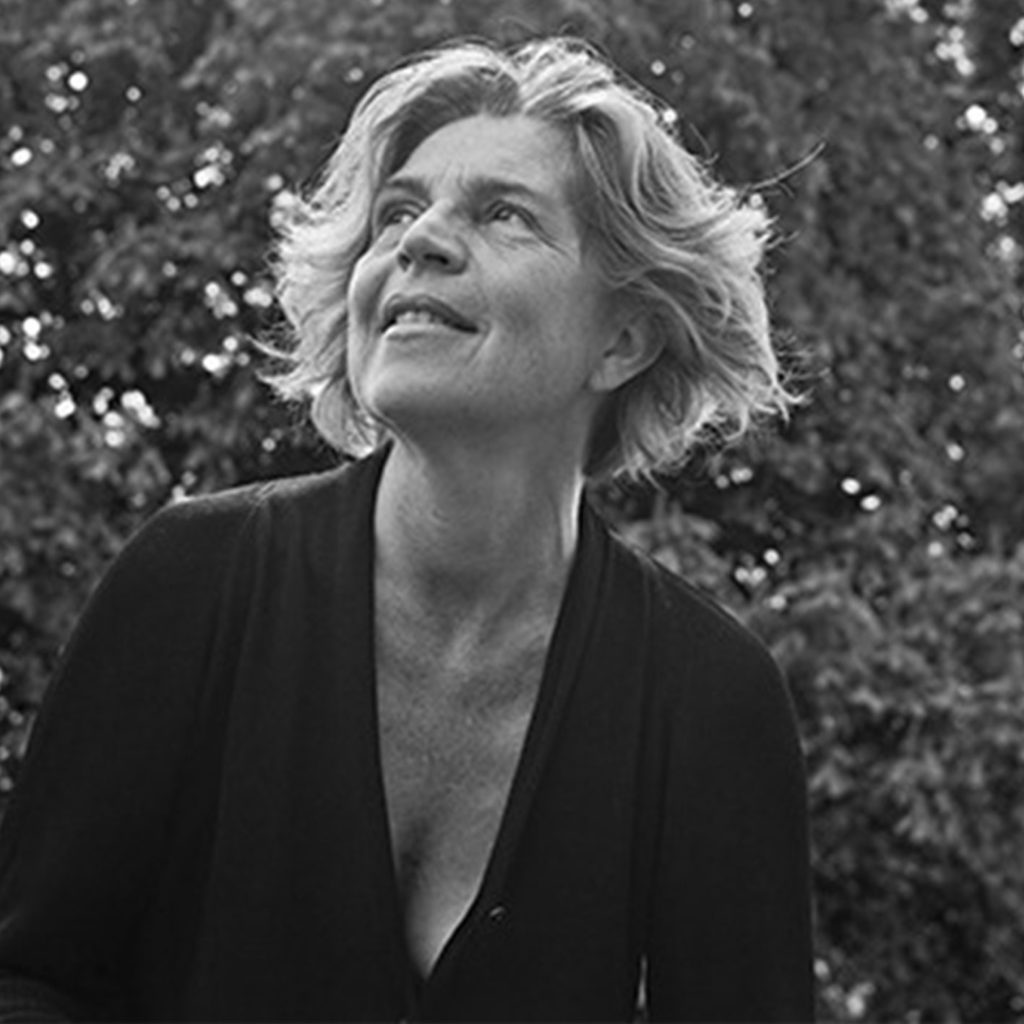
InteriorDesign/Design/Creative Director Celebrated Paris-based International designer, Mathilde Bretillot is known for her signature works, be they quirky twists on traditional luxury for Christofle, DAUM, la Manufacture de Sevres, and Boffi — or global projects in Europe and Asia for restaurants, movie theatres, apartments, houses and offices. Her iconic simplicity — often married with color and mirrored surface– belies a passionate interest in design as a joyful expression of life in its richness for all ages, in all places. From interior architecture to product development her work is seen widely in France, and across a range of brands worldwide. Early on Bretillot worked in Milan and London taking up the experimentation and social interests of Memphis to Solid.
Peter-Paul Verbeek
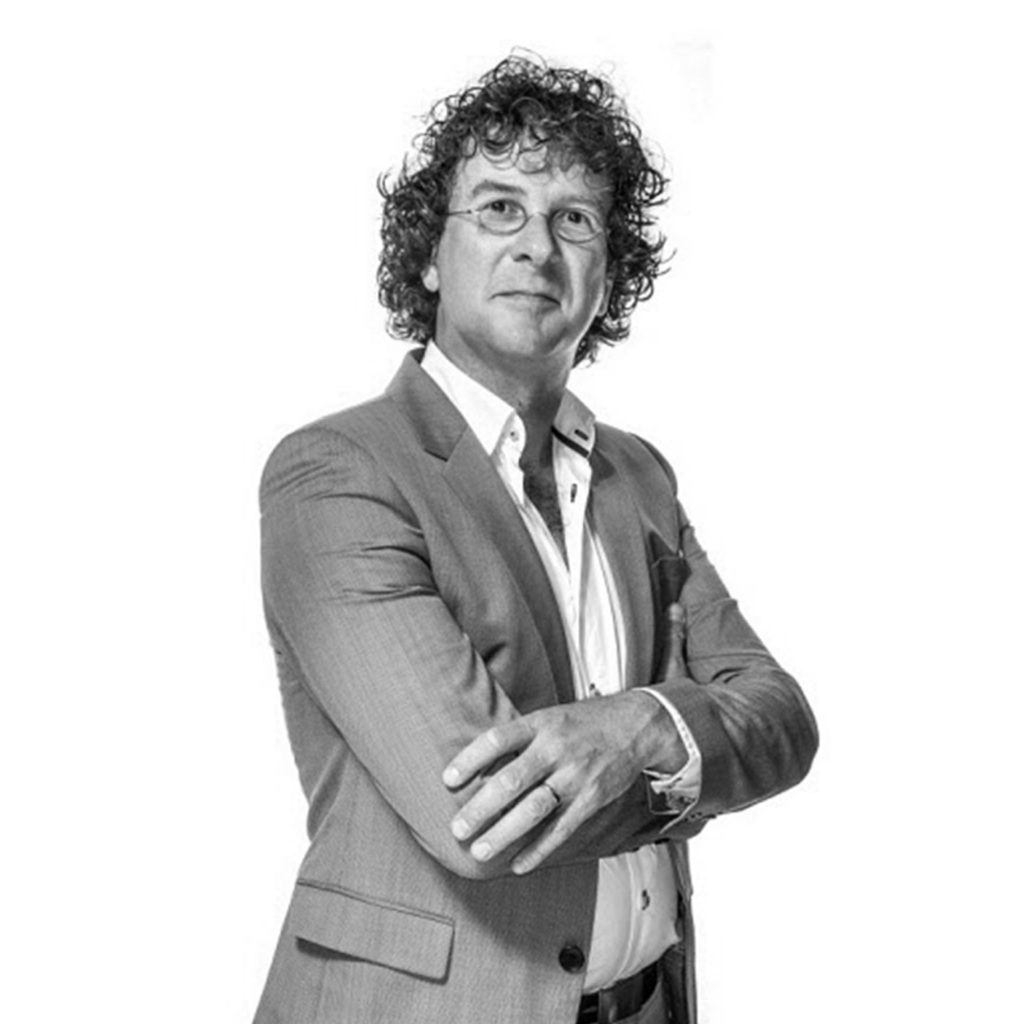
Peter-Paul Verbeek (1970) is Distinguished Professor of Philosophy of Technology and codirector of the DesignLab of the University of Twente. He is also honorary professor of Techno-Anthropology at Aalborg University, Denmark. His research focuses on the philosophy of human-technology relations, and aims to contribute to philosophical theory, ethical reflection, and practices of design and innovation. He is also chairperson of the UNESCO World Commission for the Ethics of Science and Technology (COMEST). Currently, he is one of the 6 Principal Investigators of a 10-year research program on the Ethics of Socially Disruptive Technologies.
Lorenzo Imbesi
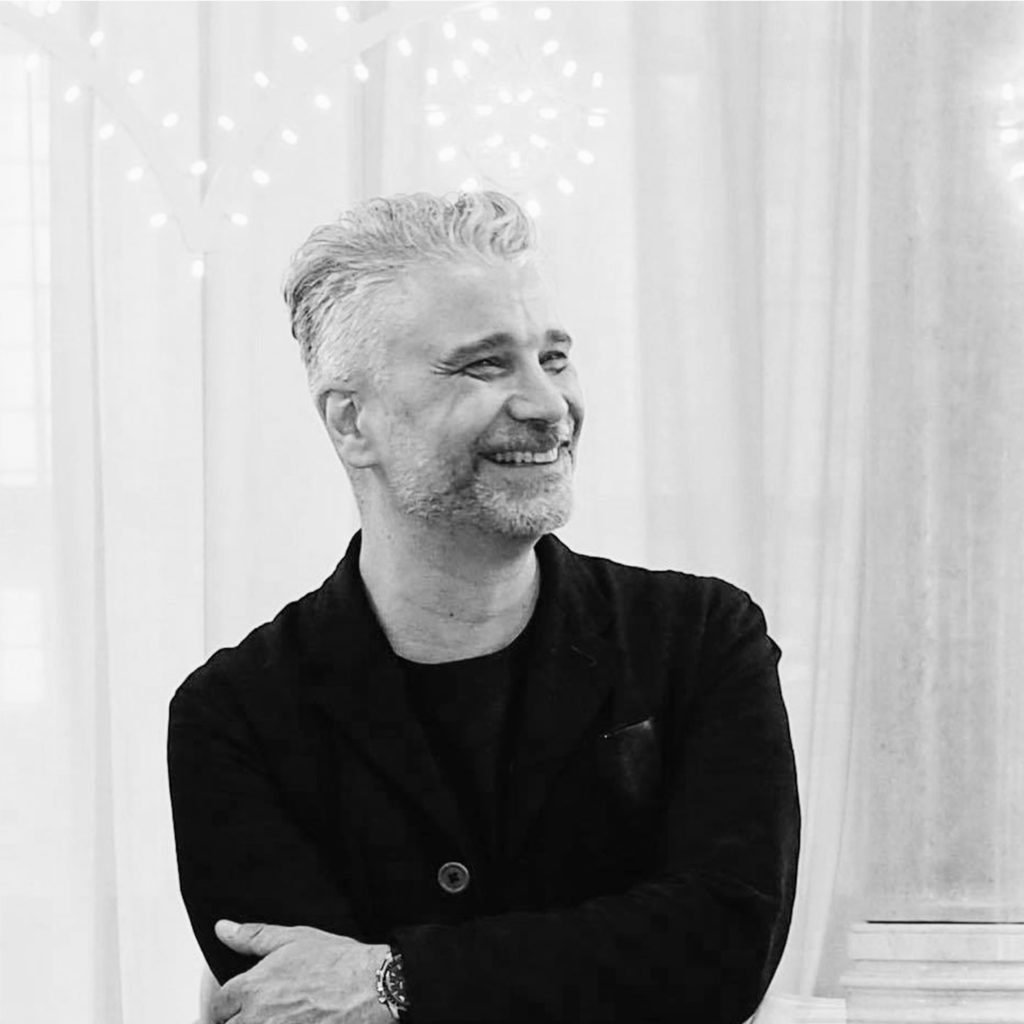
Lorenzo Imbesi is an Architect, PhD, and Full Professor at Sapienza University of Rome, where he is also director of SDR Sapienza Design Research. Previously, he was an associate professor and the chair of the Master of Design at Carleton University (CA). At the moment, he is a member of the Cumulus Association Executive Board, where he is chairing the Cumulus PhD Network, a member of the Executive Committee of EAD European Academy of Design, and a member of the board of SID Italian Society of Design. Also, he is co-editor of the Design Principles and Practices Journal Collection and a member of the editorial board of The Design Journal and DIID Disegno Industriale.
Lara Penin & Gui Bonsiepe
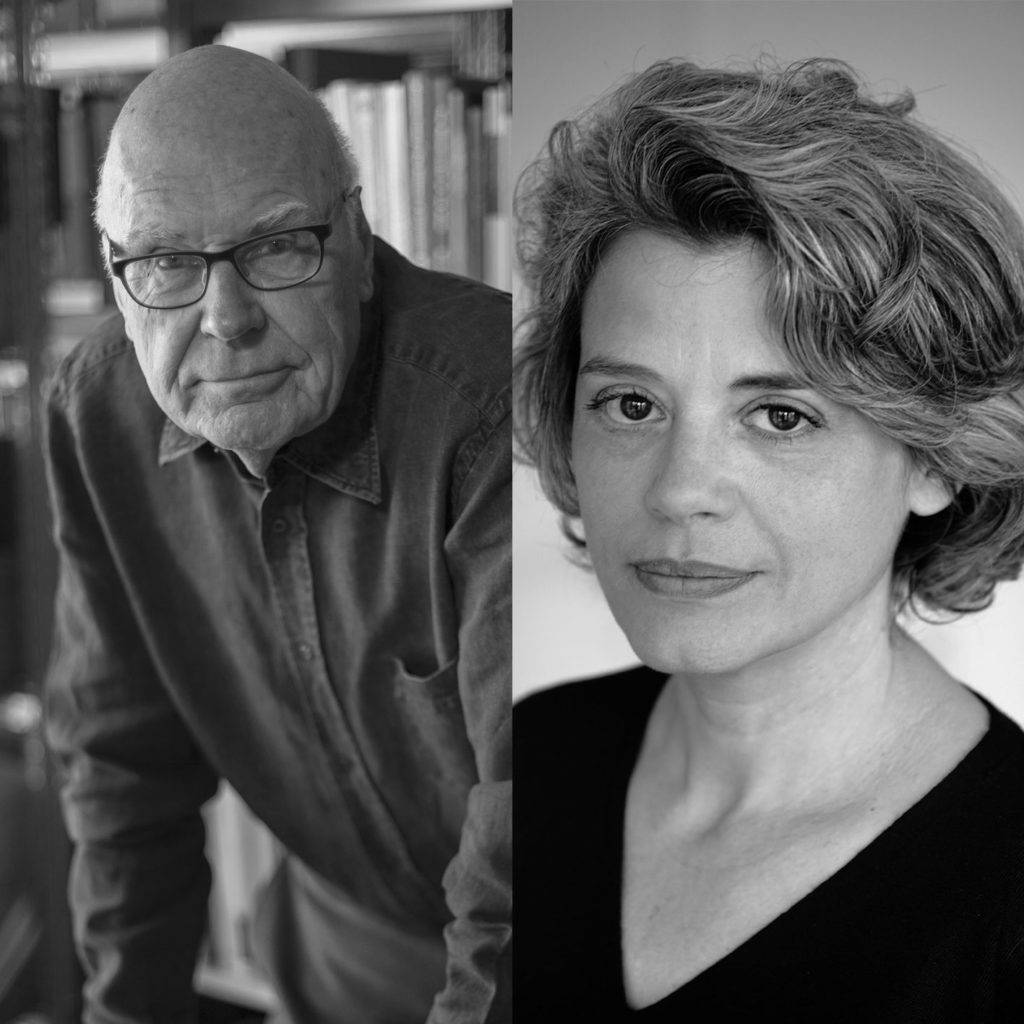
Presentation of the Book – The Disobedience of Design – Gui Bonsiepe
This volume presents for the first time in English a curated selection of writings by the design thinker Gui Bonsiepe from the 1960s to the present day. Addressing as it does questions of non-Western design and a design practice that is both radical and democratic, Bonsiepe’s work has assumed new importance for current debates inspired by global political and environmental crises. Structured into three sections, the anthology first addresses Bonsiepe’s work on design theory and practice, particularly in relation to the history and contemporary relevance of the Ulm design school, where Bonsiepe was a professor in the 1960s. A second section then represents Bonsiepe’s writings after his move to South America in the 1960s and ’70s, where he worked as a design consultant for the Allende government in Chile before the military takeover. In writings from the period, Bonsiepe explores the concept of design ‘at the periphery’ and the relationship of national design traditions and practices in Latin American countries to those of ‘the core’ – Western European and American design. The final section comprises selections of Bonsiepe’s writings on design in relation to literacy and language, visuality and cognition. This indispensable volume includes new interviews with Bonsiepe as well as his original, previously unpublished texts.
Conference Chairs
Emília Duarte, Unidcom/IADE Coordinator, IADE, Universidade Europeia, Portugal
Annalisa Di Roma, Politecnico di Bari, Italy
Conference Managers
Alessandra Scarcelli, Politecnico di Bari, Italy
Davide Antonio Gambera, IADE, Universidade Europeia, Portugal
Scientific Committee
Alessandra Scarcelli, Politecnico di Bari, Italy
Alfonso Morone, University of Napoli Federico II, Italy
Amilton Arruda, Federal University of Pernambuco, Brazil
Ana Luísa Marques, IADE, Universidade Europeia, Portugal
Ana Margarida Ferreira, IADE, Universidade Europeia, Portugal
Andrea Grimaldi, Università La Sapienza di Roma, Italy
Antonio Labalestra, Politecnico di Bari, Italy
António Mendes, IADE, Universidade Europeia, Portugal
Ayman Kassem, Lebanese University, Lebanon
Camilo Ayala Garcia, Universidad de los Andes, Colombia
Carla Chiarantoni, Politecnico di Bari, Italy
Carla Langella, Università della Campania Luigi Vanvitelli, Italy
Carlos Duarte, IADE, Universidade Europeia, Portugal
Carlos Rosa, IADE, Universidade Europeia, Portugal
Cayetano José Cruz, Universidad de Extremadura, Mérida, Spain
Cláudia Mont’Alvão, Pontifícia Universidade Católica do Rio de Janeiro, Brazil
Cristina Caramelo Gomes, Universidade Lusiada do Porto, Portugal
Cristina Pinheiro, IADE, Universidade Europeia, Portugal
Daniel Buzzo, CODE University of Applied Sciences, Berlin, Germany
Daniel Raposo, Insitituto Politécnico de Castelo Branco, Portugal
Delia Alexandra Prisecaru, Polytechnic University of Bucharest, Romania
Dina Riccò, Politecnico di Milano, Italy
Edirlei Lima, IADE, Universidade Europeia, Portugal
Eduardo Gonçalves, IADE, Universidade Europeia, Portugal
Elena della Piana, Politecnico di Torino, Italy
Ernesto Filgueiras, Universidade da Beira Interior, Portugal
Flávio Almeida, Universidade da Beira Interior, Portugal
Hande Ayanoglu, IADE, Universidade Europeia, Portugal
Helena Barbosa, Universidade de Aveiro, Portugal
Helena Souto, IADE, Universidade Europeia, Portugal
Isabel Farinha, IADE, Univerleirsidade Europeia, Portugal
João Ferreira, IADE, Universidade Europeia, Portugal
Juan Aguilar Jiménez, Universidad de Málaga, Spain
Liene Jakobsone, Art Academy of Latvia, Latvia
Loredana Di Lucchio, Università La Sapienza di Roma, Italy
Maria Antonietta Sbordone, Università della Campania Luigi Vanvitelli, Italy
Marinella Ferrara, Politecnico di Milano, Italy
Nicos Souleles, Cyprus University of Technology, Cyprys
Patrick Pradel, Loughborough University, United Kingdom
Paula Trigueiros, Universidade do Minho, Portugal
Paulo Maldonado, Universidade de Évora, Portugal
Pedro Oliveira, IADE, Universidade Europeia, Portugal
Priscila Farias, Universidade de São Paulo, Brazil
Raul Cunca, Faculdade de Belas Artes da Universidade de Lisboa, Portugal
Renato Bispo, Istituto Politécnico de Leiria, Portugal
Rodrigo Hernández-Ramírez, IADE, Universidade Europeia, Portugal
Rodrigo Morais, IADE, Universidade Europeia, Portugal
Rosa Pagliarulo, Politecnico di Bari, Italy
Rossana Carullo, Politecnico di Bari, Italy
Rui Patrício, IADE, Universidade Europeia, Portugal
Sabrina Lucibello, Università La Sapienza di Roma, Italy
Santi Centineo, Politecnico di Bari, Italy
Sara Gancho, IADE, Universidade Europeia, Portugal
Serena Del Puglia, Università degli Studi di Palermo, Italy
Teresa Cotrim, Universidade de Lisboa, Lisbon, Portugal
Thomas Behrens, IADE, Universidade Europeia, Portugal
Valentina Rognoli, Politecnico di Milano, Italy
Veronica Dal Buono, Università di Ferrara, Italy
Vincenzo Paolo Bagnato, Politecnico di Bari, Italy
Viviana Trapani, Università degli Studi di Palermo, Italy
Conference Venue
Politecnico di Bari, Faculty of Architecture, via Edoardo Orabona, 4 – 70126, Bari
Suggested Hotels
*** Hotel Campus
*** Hotel Adria
*** Hotel Moderno
*** Hotel Best Western Executive
*** Hotel Boston
**** Palace Hotel Bari
UNIDCOM/IADE – Unidade de Investigação em Design e Comunicação. IADE, Universidade Europeia Av. D. Carlos I, 4, 1200-649 Lisbon, Portugal
info: emilia.duarte@universidadeeuropeia.pt
annalisa.diroma@poliba.it
DICAR (Department of Civil Engineering and Architecture) of Politecnico di Bari, Via Orabona 4, 70126 Bari BA, Italy





